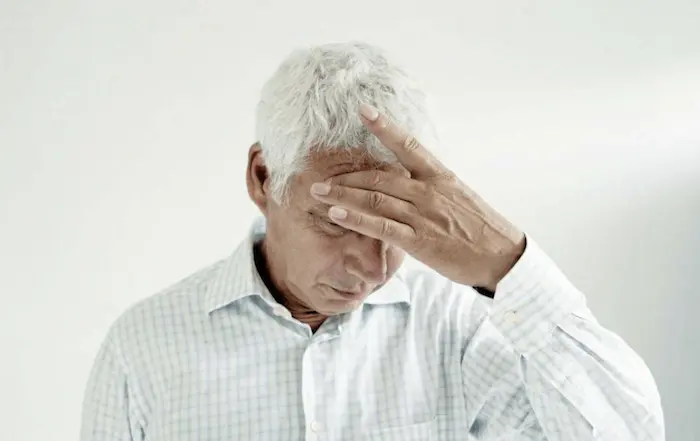Orthostatic hypotension (OH) is a form of low blood pressure that occurs upon standing from a seated or lying position. Clinically, it is defined by a drop in systolic blood pressure of at least 20 mmHg or diastolic pressure of at least 10 mmHg within three minutes of standing. This condition often leads to dizziness, fainting, and in severe cases, falls or injuries.
While many causes are known—including dehydration, medications, and neurological disorders—emerging evidence points to specific nutritional and neurological deficiencies as significant contributors. These deficiencies can interfere with autonomic regulation, vascular tone, and blood volume, exacerbating or directly causing orthostatic hypotension.
Definition and Clinical Relevance of Orthostatic Hypotension
Orthostatic hypotension is not merely a benign symptom but a potential indicator of systemic dysfunction. Its presence can signal underlying autonomic failure, cardiovascular compromise, or nutritional imbalances. In elderly populations, OH is particularly prevalent and significantly increases the risk of morbidity. Recognizing deficiency-based causes is essential in both diagnosis and tailored therapeutic intervention.
Key Symptoms and Diagnostic Criteria
Symptoms typically include:
- Dizziness upon standing
- Blurred vision
- Fatigue
- Palpitations
- Syncope (fainting)
Diagnosis involves orthostatic blood pressure measurements, clinical history, and investigations into autonomic function, hydration status, and nutritional profiles.
What Deficiency Causes Orthostatic Hypotension?
Vitamin B12 Deficiency
Vitamin B12 (cobalamin) deficiency is one of the most documented nutritional causes of orthostatic hypotension. This vitamin is crucial for neurological function and red blood cell formation. Deficiency impairs the autonomic nervous system, particularly sympathetic outflow, leading to inadequate vasoconstriction upon standing. Pernicious anemia, vegan diets, gastrointestinal surgeries, and malabsorption syndromes are key risk factors.
Folate Deficiency
Folate, another B-complex vitamin, works closely with B12 in hematopoiesis and neurological integrity. Its deficiency can contribute to autonomic dysfunction indirectly through anemia and direct nerve compromise. Folate inadequacy is prevalent in alcoholism, poor diets, and malabsorption disorders like celiac disease.
Iron Deficiency and Iron-Deficiency Anemia
Iron plays a central role in oxygen transport and autonomic nervous system regulation. Iron-deficiency anemia reduces blood oxygenation and vascular resistance, resulting in exaggerated blood pressure drops during postural changes. Chronic menstrual bleeding, gastrointestinal bleeding, and inadequate dietary intake are leading causes.
Thiamine (Vitamin B1) Deficiency
Thiamine is vital for nerve conduction and vascular tone. Deficiency leads to impaired sympathetic control and vasodilation. In severe cases such as beriberi, profound hypotension occurs. Thiamine deficiency is common among alcoholics, patients with eating disorders, and those undergoing dialysis.
Magnesium Deficiency
Magnesium is necessary for neuromuscular function and vascular reactivity. Deficiency can contribute to arrhythmias and impaired vasomotor tone, both of which may precipitate OH. Causes include chronic diarrhea, diuretic use, and poor dietary intake.
Sodium Deficiency (Hyponatremia)
Sodium is essential in maintaining intravascular volume and osmotic balance. Hyponatremia results in decreased plasma volume, leading to reduced venous return and cardiac output upon standing. Low sodium can be iatrogenic (e.g., diuretics), due to adrenal insufficiency, or from chronic illnesses.
Vitamin D Deficiency
Emerging evidence links vitamin D with blood pressure regulation via the renin-angiotensin-aldosterone system. Its deficiency may lead to vascular stiffness and increased OH risk, especially in elderly patients with comorbidities.
Neurological Impairment due to Deficiency
Several deficiencies—primarily B12, thiamine, and folate—can damage the autonomic nervous system. Demyelination of sympathetic fibers, impaired baroreceptor reflexes, and neurodegeneration are well-documented mechanisms. Symptoms like paresthesia, ataxia, and cognitive decline often accompany hypotension, signaling broader neurological involvement.
Deficiency-Induced Hypovolemia
Certain deficiencies directly contribute to decreased blood volume:
- Sodium and chloride deficits impair extracellular fluid retention
- Iron and B12 reduce red cell mass
- Protein-calorie malnutrition decreases plasma oncotic pressure
These changes reduce effective circulating volume, impairing compensatory vasoconstriction during postural changes.
Risk Populations and Screening Strategies
Populations at higher risk include:
- Elderly individuals
- Patients with gastrointestinal disorders (e.g., Crohn’s disease, celiac disease)
- Strict vegans and vegetarians
- Chronic alcohol users
- Patients on long-term diuretics or proton pump inhibitors
Routine screening for deficiencies in these groups is crucial. Blood panels including CBC, vitamin B12, folate, serum iron, ferritin, magnesium, sodium, and thiamine levels are recommended in recurrent OH cases.
Management and Treatment Approaches
Nutritional Repletion
Correcting the underlying deficiency often leads to symptom resolution. Treatment may involve:
- Oral or parenteral vitamin B12 for pernicious anemia
- Iron supplementation with or without erythropoietin for iron-deficiency anemia
- Magnesium and thiamine repletion in alcohol-induced deficiencies
- Dietary modifications to increase folate and sodium intake
Supportive Therapies
Other non-pharmacological strategies include:
- Gradual position changes
- Compression stockings
- Increased fluid and salt intake
- Elevating the head of the bed during sleep
These interventions aim to improve venous return and stabilize blood pressure fluctuations.
Pharmacologic Interventions
If symptoms persist despite correction of deficiencies, medications may be used:
- Midodrine: alpha-agonist to induce vasoconstriction
- Fludrocortisone: promotes sodium retention and plasma volume expansion
- Droxidopa: increases norepinephrine levels in autonomic dysfunction
These should be used cautiously and under specialist supervision.
Preventive Strategies
Prevention of orthostatic hypotension due to deficiency revolves around:
- Early nutritional assessment in high-risk individuals
- Proper dietary education, especially for restrictive diets
- Routine supplementation in known malabsorptive disorders
- Regular follow-up of chronic illness patients
Complications of Untreated Deficiency-Induced OH
Ignoring the deficiency-related cause of OH can lead to:
- Recurrent falls and fractures
- Syncope-related accidents
- Progressive autonomic neuropathy
- Worsening cardiovascular outcomes
Proactive identification and treatment are essential to mitigate these risks.
Conclusion
Orthostatic hypotension is a multifactorial condition often underestimated in clinical practice. Nutritional and neurological deficiencies play a substantial role in its pathophysiology. Identifying and correcting specific deficiencies—especially vitamin B12, thiamine, iron, magnesium, folate, and sodium—can drastically improve outcomes. For high-risk populations, routine screening and preventive strategies are vital. Integrating nutritional assessment into the diagnostic algorithm enhances the effectiveness of treatment and improves quality of life.
Related topics:


